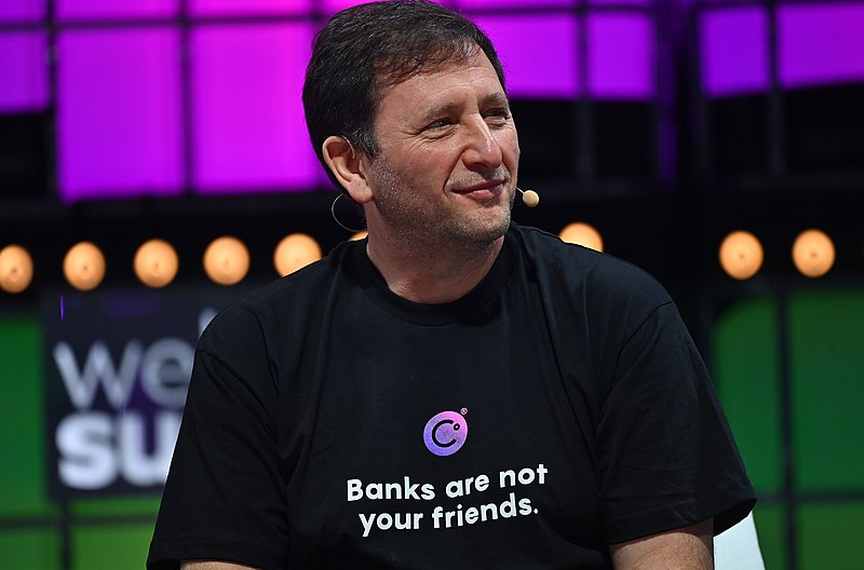Celsius founder Alex Mashinsky pleads guilty to multi-billion-dollar fraud, faces up to 30 years in prison

In July 2023, Alex Mashinsky, the founder and former CEO of the bankrupt crypto lending platform Celsius Network, was arrested on fraud charges after an investigation into the fall of the seven-year-old crypto startup. Now, just over a year later, Mashinsky has admitted to defrauding investors.
On Monday, Mashinsky pleaded guilty to commodities fraud and securities fraud, crimes that carry a combined maximum sentence of 30 years. According to the news release from the Department of Justice (DOJ) in the Southern District of New York, Mashinsky misled customers about Celsius’s financial health and investment security, while secretly manipulating the price of the platform’s proprietary token, CEL, for personal profit.
“Alexander Mashinsky orchestrated one of the biggest frauds in the crypto industry. He lured ordinary, retail crypto investors into investing billions of dollars in Celsius with false promises that their investments were low-risk,”U.S. Attorney Damian Williams said.
Williams added, “Using catchy slogans like ‘Unbank Yourself,’ Mashinsky promised that Celsius would keep customers’ crypto as safe as money in a bank, but that, unlike a bank, Celsius returned most of the profits from its business back to users. In reality, Celsius was never profitable. To disguise the flaws in his business model, Mashinsky put investors’ money into riskier and riskier bets, and secretly used customer money to prop up the price of CEL token. Mashinsky made tens of millions of dollars selling his own CEL at artificially high prices, while his customers were left holding the bag when the company went bankrupt. Today’s convictions reflect this Office’s commitment to holding fraudsters like Mashinsky accountable for their crimes.”
As part of the plea deal, Mashinsky has agreed to forfeit over $48 million gained through his schemes.
The Rise and Fall of Celsius Network
Celsius Network, launched in 2017 with promises of high returns and slogans like “Unbank Yourself,” marketed itself as a safe alternative to traditional banks. It offered programs like “Earn” and “Custody,” claiming to generate high yields for users by leveraging cryptocurrency lending and borrowing. By 2021, Celsius managed $25 billion in assets, mostly from retail investors.
However, behind the scenes, Mashinsky and his team misrepresented the company’s financial stability and used customer funds to inflate CEL’s price artificially. This created a false sense of profitability and security, leaving investors vulnerable to massive losses when the company collapsed.
In June 2022, Celsius froze withdrawals for its 1.7 million customers, locking up more than $4.7 billion in crypto assets. A month later, the company filed for bankruptcy, joining other crypto startups affected by their exposure to the now-bankrupt hedge fund Three Arrows Capital (3AC).
A Scheme Built on Deception
Mashinsky’s fraudulent activities included using customer deposits to purchase CEL tokens on the open market, inflating their value, and enabling him to sell his personal holdings for approximately $48 million in profit. While the company teetered on the brink of collapse, Mashinsky continued to assure investors of Celsius’s liquidity and withdrew millions of dollars in his own assets, according to the DOJ.
U.S. Attorney Damian Williams described Mashinsky’s actions as “one of the biggest frauds in the crypto industry.” Williams highlighted the deceptive marketing practices, including promises of safety and profitability, that lured retail investors into trusting Celsius.
“In reality, Celsius was never profitable,” Williams stated. “Mashinsky used customer money to prop up CEL’s price, sold his own holdings at inflated prices, and left customers with nothing when the company failed.”
The Aftermath
The collapse of Celsius has left countless retail investors unable to access their funds, underscoring the risks tied to unregulated crypto ventures. Mashinsky’s case serves as a stark reminder of the dangers of misplaced trust in platforms promising high returns without transparency.
Mashinsky now faces up to 30 years in prison, marking a significant moment in the ongoing effort to hold crypto industry figures accountable for misconduct.




